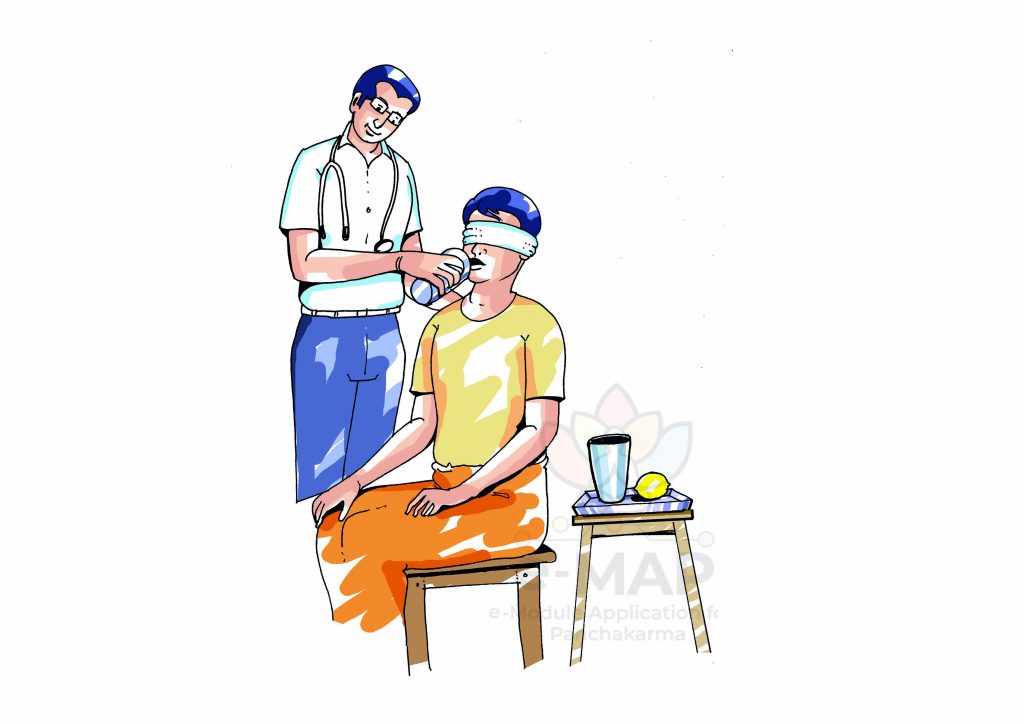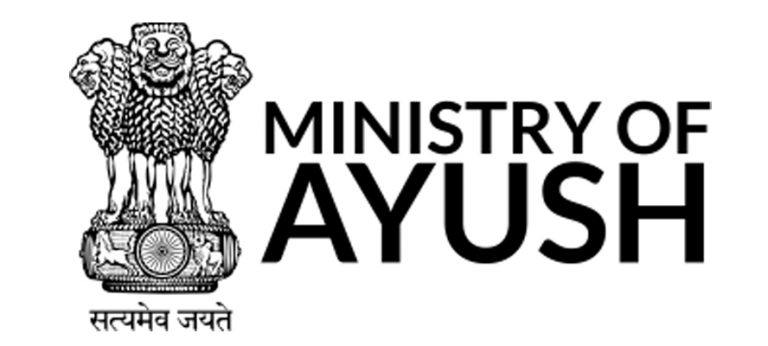
PG Module 2
SNEHANA

EXPLANATORY NOTES
NEED AND METHOD OF RŪKṢAṆA BEFORE PERFORMING SNEHANA IN SPECIFIC CONDITIONS AND SAMYAK RŪKṢAṆA LAKṢAṆA
Vāgbhaṭa has suggested that persons who are muscular, fatty, having imbalanced kapha, vishāmaagni, who are accustomed to fats and who need oleation therapy should be made to become dry first – by use of foods, drugs etc. and then be administered oleation therapy followed by purification therapies.
rūkṣaṇa is the viśiṣṭa purvakarma before the administration of shodhanaṅga sneha in specific conditions like:
मांसला मेदुरा भूरिश्लेष्माणो विषमाग्नयः । स्नेहोचिताश्च ये स्नेह्यतान् पूर्व रूक्षयेत्ततः ।। (As.Hr.Su. 16/37)
Māṃsala (Upacita Māmsa)
Medura (Medasvina)
Bhūriśleṣma (Excess of kapha)
Viṣamāgni (Altered state of digestive strength)
Rūkṣaṇa should be done before the administration of sneha except viṣamāgni. If it is not performed then it results in snehavyāpad. In sneha sātmya condition if snehapāna is administered then there will be anututkleśana of doṣa. Here pācana is indicated i.e. nothing but rūkṣaṇa.
Properties of rūkṣaṇa dravya
रूक्षं लघु खरं तीक्ष्णमुष्णं स्थिरमपिच्छिलम्।
प्रायशः कठिनं चैव यद्रव्यं तद्धि रूक्षणम्।। (Cha.Su.22/14)
Rūkṣaṇa is mainly achieved by sneha abhāva. It is rūkṣa guṇa pradhana karma and dravya Kārya is very important here.
Rūkṣa (unctuous)
Laghu (light)
Khara (rough)
Tīkṣṇa (sharp)
Uṣṇa (hot)
Sthira (stable)
Apicchila (non-viscous)
Kaṭhina (hard)
While explaining rūkṣaṇa guṇa vāgbhaṭa says vipareetha guṇas of snehana should be considered.
Aruna Datta explains laghu, uṣṇa, sthira, rūkṣa, tīkṣṇa, sthūla, kaṭhina, sāndra are the guṇas of rūkṣaṇa. He also explains opposite qualities of these can also have rūkṣaṇa property like yava is having guru, śīta, sara guṇa etc. but it is a rūkṣaṇa drug ie kaṭu, tikta, kaṣāya rasa pradhāna dravya.
Indications of rūkṣaṇa
अभिष्यण्णा महादोषा मर्मस्था व्याधयश्च ये।
ऊरुस्तम्भ प्रभृतयो रूक्षणीया निदर्शिताः।। (Cha.Su.22/30)=
- Abhiṣaṇṇa drava pradhāna śleṣma vikāra like prameha.
- Mahadoṣa- kapha vṛddha state of bahudoṣa like prameha, udara etc.
- Marmastha vyādhi like hridroga.
- Ūrusthamba.
Samyak rūkṣaṇa lakṣaṇa
वातमूत्रपुरीषाणां विसर्गेगात्र लाघवे।
हृदयोद्गारकण्ठास्यशुद्धौ तन्द्राक्लमे गते ।।
स्वेदे जाते रुचौ चैव क्षुत्पिपासासहोदये।
कृतं लङ्घनमादेश्यं निर्व्यथे चान्तरात्मनि (Cha.Su. २२/३४-३५)
Samyak vāta, mūtra, udgāra śuddhi
Mala pravṛtti, hridaya śuddhi, kaṇṭa śuddhi
Āsya śuddhi
Tandrānāśa
Tamosveda kṣut pipāsa sahodaya
Utsāha
Gātra Laghuta
Indriya prasannatha
KlāmaNasha
Ruchi
Vyadhi Mardhava
Nirvyathe Antharatma
पुरीषं ग्रथितं रूक्षं कृच्छ्रादन्नं विपच्यते ॥५१॥
उरो विदहते वायुः कोष्ठादुपरि धावति ।
दुर्वर्णो दुर्बलश्चैव रूक्षो भवति मानवः ॥५२॥. सु.चि. ३१/५१
In persons who are dry, faeces will be hard, solid and dry, food gets digested with difficulty, there will be burning sensation in the chest, vāta moves upward from the abdomen, the person will have discolouration, debility and dryness of the body.
Rūkṣaṇa Atiyoga lakṣaṇa:
पर्वभेदोऽङ्गमर्दश्च कासः शोषो मुखस्य च।
क्षुत्प्रणाशोऽ रुचिस्तृष्णा दौर्बल्यं श्रोत्रनेत्रयोः ।।
मनसः संभ्रमोऽ भीक्ष्णमूर्ध्ववातस्तमो हृदि ।
देहाग्निबलनाशश्च लङ्घनेऽतिकृते भवेत्।। (Cha.Su.22/36-37)
Parvabedha- Pain in joints
Aṅgamarda-Body ache
Kāṣa : Cough
Mukha śoṣa: Mouth dryness
Kṣut Pranasha: Absence of hunger
Aruchi: Lack of taste
Tṛṣṇā: Thrist
Śrotra netra daurbalya: Impairment of hearing and vision Mana Sambrāma
Mana asthirata: Altered state of mind
Ūrdhvavāta: Upward movement of vāta
Hrudhi: Discomfort in the chest
Deha bala nasha: Loss of weight and strength
Agni bala nasha: Loss of digestive strength



